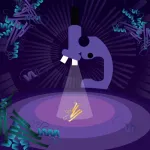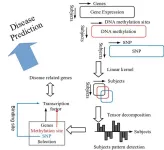(Press-News.org) Wine quality is notorious for varying from year to year, but what makes for a “good year”? In a paper publishing October 11 in the journal iScience, researchers show that weather plays an important role in determining wine quality. By analyzing 50 years’ worth of wine critic scores from the Bordeaux wine region in relation to that year’s weather, the researchers showed that higher quality wine is made in years with warmer temperatures, higher winter rainfall, and earlier, shorter growing seasons—conditions that climate change is predicted to make more frequent.
“Weather drives wine quality and wine taste,” says first author Andrew Wood of the University of Oxford. “We found evidence that temperature and precipitation effects occur throughout the year—from bud break, while the grapes are growing and maturing, during harvesting, and even overwinter when the plant is dormant.”
The same vineyard can produce different vintage qualities in different years, despite those wines coming from grapes grown on the same vines, on the same land, and being produced by the same methods. How yearly fluctuations in weather influences wine quality has been a longstanding question. A newer, related, question is how climate change might impact wine quality. Weather and climate—the latter describing the weather over a long period of time—are expected to impact crops, but the link between climate change and agricultural produce quality has not been widely explored.
To investigate how weather and climate impact wine quality, the researchers paired high-resolution climate data with annual wine critic scores from the Bordeaux wine region in southwest France from 1950 to 2020. They analyzed wine quality both at the regional scale (i.e., how did Bordeaux wine quality in general vary from year to year?) and on a more local scale, focusing on yearly variation in wine quality for individual “appellations d’origine contrôlée,” or AOCs, within Bordeaux—defined geographical regions with defined methods of grape cultivation and wine production. Then, they used models to test whether wine quality was impacted by weather factors such as season length and ranges and shifts in temperature and precipitation.
Unlike previous studies that focused only on weather during the growing season, this study also investigated the impact of weather during the non-growing winter season, when grape vines are usually dormant. “Perennial crops like grapes are there all the time, and so things that happen outside of the growing season can also impact the wine,” says Wood.
The researchers chose to focus on Bordeaux because it’s a wine region that relies exclusively on rainfall for irrigation and because Bordeaux has long-term records of wine scores—they were able to leverage merchant wine scores from 1950 to 2020 for the overall region and wine critic scores from 2014 to 2020 for the individual AOCs. Wine judging is subjective and unblinded, meaning that wine critics know the origins of the wines they’re tasting. However, because most critics agree on what is a “good” vs a “bad” wine, the authors say that quality is “a non-subjective property of perennial crops” that could be used to monitor how crops are changing long-term.
Overall, the researchers found that Bordeaux wine quality scores tended to improve between 1950 and 2020. Though this could be because Bordeaux’s climate warmed over that period, it could also be because of the increasing use of technology in wine making over this period or because wine makers are increasingly matching their techniques to consumer preferences.
“The trend, whether that’s driven by the preferences of wine critics or the general population, is that people generally prefer stronger wines which age for longer and give you richer, more intense flavors, higher sweetness, and lower acidity,” says Wood. “And with climate change—generally, we are seeing a trend across the world that with greater warming, wines are getting stronger.”
The team found that weather impacted wine quality throughout the year, not just during the growing season. In general, high-quality wines were associated with cooler, wetter winters; warmer, wetter springs; hot, dry summers; and cool, dry autumns.
Given that climate change is resulting in these types of weather patterns in Bordeaux, the researchers say that wine in this region is likely to continue to increase in quality as climate change progresses. “With the predicted climates of the future, given that we are more likely to see these patterns of warmer weather and less rainfall during the summer and more rainfall during the winter, the wines are likely to continue to get better into the future,” says Wood.
However, this is true only up until the point at which water becomes limited. “The problem in scenarios where it gets really hot is water: if plants don’t have enough, they eventually fail, and when they fail, you lose everything,” says Wood. “But the general idea or consensus is that the wines will continue to get better up to the point where they fail.”
Though the study focused on Bordeaux wines, the researchers suspect that their results also apply to other wine regions. Testing this is the next step. They say that their methods could also be extended to examine the impact of yearly weather variation and climate change on other perennial crops, such as cocoa and coffee, if long-term quality records are available.
###
This research was supported by the Biotechnology and Biological Sciences Research Council.
iScience, Wood et al., “Seasonal Climate Impacts Wine Quality in Bordeaux” https://www.cell.com/iscience/fulltext/S2589-0042(23)02031-X
iScience (@iScience_CP) is an open-access journal from Cell Press that provides a platform for original research and interdisciplinary thinking in the life, physical, and earth sciences. The primary criterion for publication in iScience is a significant contribution to a relevant field combined with robust results and underlying methodology. Visit http://www.cell.com/iscience. To receive Cell Press media alerts, contact press@cell.com.
END
High Mountain Asia (HMA), encompassing the Tibetan Plateau and the surrounding Hindu Kush, Karakoram, and Himalayan ranges, harbors the world's third-largest amount of glacial ice. It is the source of more than 10 major Asian rivers and vital water resources for nearly 2 billion people.
Recent decades have witnessed a dipolar trend in HMA precipitation, characterized by an increase in the north but a decrease in the southeast. These changes have significant implications for water resource security and ecological equilibrium in both local ...
The study, published today in Nature, reports the sighting of two ice giant exoplanets colliding around a sun-like star, creating a blaze of light and plumes of dust. Its findings show the bright heat afterglow and resulting dust cloud, which moved in front of the parent star dimming it over time.
The international team of astronomers was formed after an enthusiast viewed the light curve of the star and noticed something strange. It showed the system doubled in brightness at infrared wavelengths some three years before the star started to fade in visible light.
Co-lead author Dr Matthew Kenworthy, from Leiden University, ...
People with early Alzheimer’s disease have difficulty turning when walking, according to a new study using virtual reality led by UCL researchers.
The study, published in Current Biology, used a computational model to further explore the intricacies of navigational errors previously observed in Alzheimer’s disease.
Researchers, led by Professor Neil Burgess and colleagues in the Space and Memory group* at the UCL Institute of Cognitive Neuroscience, grouped participants into three categories: healthy younger participants (31 total), healthy elderly participants (36 total) and patients with mild cognitive impairment (43 total). They then asked ...
About The Study: The findings of this study of nearly 13,000 veterans with nonmetastatic castration-resistant prostate cancer suggest that differences in outcomes by race and ethnicity exist. In addition, Black and Hispanic men may have considerably improved outcomes when treated in an equal-access setting.
Authors: Kelli M. Rasmussen, M.S., of the University of Utah School of Medicine in Salt Lake City, is the corresponding author.
To access the embargoed study: Visit our For The Media website at this link https://media.jamanetwork.com/
(doi:10.1001/jamanetworkopen.2023.37272)
Editor’s Note: Please see the article for additional information, including ...
About The Study: Survivors of adolescent and young adult cancer had high rates of perceiving increased infertility risk but frequently overestimated or underestimated their risk in this study that included 785 participants. These findings suggest that counseling on infertility risk throughout survivorship may reduce misalignment between perceptions and actual risk, decrease fertility-related psychological distress, and inform family planning decisions.
Authors: H. Irene Su, M.D., M.S.C.E., ...
Researchers have developed a method that can reveal the location of errors in quantum computers, making them up to ten times easier to correct. This will significantly accelerate progress towards large-scale quantum computers capable of tackling the world’s most challenging computational problems, the researchers said.
Led by Princeton University’s Jeff Thompson, the team demonstrated a way to identify when errors occur in quantum computers more easily than ever before. This is a new direction for research ...
PHILADELPHIA – Women and those from racial and ethnic groups underrepresented in medicine (URiM) not only occupy few leadership roles in surgical departments but also tend to be clustered into certain leadership roles, according to a new analysis led by researchers from the Perelman School of Medicine at the University of Pennsylvania. These clusters of roles include vice chairs of diversity, equity, and inclusion (DEI) or wellness, where the promotion path to department chair is unclear. The report was published today in JAMA Surgery and led by ...
At a glance:
New AI tool called EVEscape uses evolutionary and biological information to predict how a virus could change to escape the immune system.
The tool successfully predicted the most concerning new variants that occurred during the COVID-19 pandemic.
Researchers say the tool can help inform the development of vaccines and therapies for SARS-CoV-2 and other rapidly mutating viruses.
The COVID-19 pandemic seemed like a never-ending parade of SARS-CoV-2 variants, each equipped with new ways to evade the immune system, leaving the world bracing for what would come next.
But what if there were a way to make predictions ...
Imagine researchers exploring a dark room with a flashlight, only able to clearly identify what falls within that single beam. When it comes to microbial communities, scientists have historically been unable to see beyond the beam — worse, they didn’t even know how big the room is.
A new study published online October 11, 2023 in Nature highlights the vast array of functional diversity of microbes through a novel approach to better understand microbial communities by looking at protein function within them. The work was led by a team of scientists at the U.S. Department of Energy ...
【Research Study】
1. Background
Multiomics3 analysis that integrates different layers of profiles altogether is challenging, since the number of variables in profile substantially differ from each other. For instance, gene expression profile and genomic DNA methylation profile are often analyzed together, however, there are only tens of thousands of genes, whereas the number of DNA methylation sites are as many as tens of millions. The numbers differ one thousand times and the number ...




